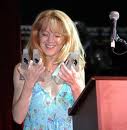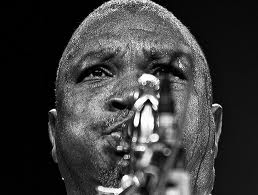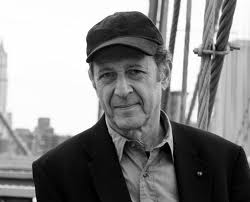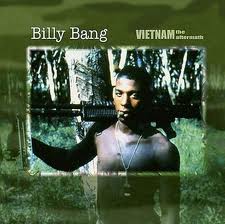Gil Scott-Heron, dead at age 62, was a poet, prophet and spokesperson of the black urban American experience. A merciless and unsentimental truth-teller when he emerged on the scene in the ’70s, by telling Afro-identified kids dancing to Motown and grooving on psychedelic rock that “the revolution will not be televised” he meant that the real revolution in Civil Rights and human conduct was not a show, that those who wanted to make it happen or enjoy its results had to liberate themselves from sitting on the couch zoning out, that there was dirty work ahead.
Celebrating jazz excellence — Awards, honors and privileges
The NEA zeroes out its Jazz Masters program, the Grammys cuts categories so pop best-sellers regain prominence vis a vis less obviously commercial stars, but the Jazz Journalists Association’s 15th annual Jazz Awards — to be held June 11, 2011 with an afternoon gala with all star music at City Winery, NYC, satellite parties hosted by prominent fans and grass roots organizations around the U.S. and streaming live video on the web at www.JJAJazzAwards.org — hails loud and clear the achievements of the jazz music and media makers. (See that website for a list of all the nominees).

South African jazz hero Zim Nqgawana dies, age 52
Neil Tesser has written an informative post about Zim Nqgawana, the South African jazz musician who died at age 52 of a stroke May 10. Ngqawana, whose name is pronounced with a glottal “click” between the “N” and first “a,” performed at the 2007 Columbia/Harlem Festival of Global Jazz,” curated by George E. Lewis of Columbia University’s Center for Jazz Studies, Nqgawana, with his quartet, in that concert struck me as a powerful and original saxophonist and flutist, improvising with a heightened lyricism no doubt inspired by John Coltrane’s late period sound, but standing on its own. (photo by Dragan Tasic).

photo ©Dragan Tasic
CityArts New York June jazz fests bustin’ out-all-over supplement
Steve Reich @ Carnegie Hall @ 75, with devotees

Steve Reich, courtesy of the artist
Composer Steve Reich, age 75, knows secrets of correlating pulsating rhythms and interlocking layers of sycopated melodic patterns which he’s eager to reveal in every work he writes. His musical signature is so unwavering it might veer into self-parody, but for the vigor and commitment of his performers. At Carnegie Hall last night four energized new music ensembles poured enthusiasm, precision and a sense of discovery into four recent Reich pieces, making their Master’s overlays, cycles and cells variously delightful, ominous, rockin’, tense, melodramatic and exotic. Reich writes music that’s both reassuring and subversive, and his 75th birthday concert at Carnegie Hall provided both in delicate yet confident balance.
Creative Music Studio, Woodstock at Columbia U and East Village
My CityArts – New York column is about the Creative Music Symposium, organized by Karl Berger, pianist/vibist with his wife Ingrid Sertso, who cofounded with free-thinking Ornette Coleman of the Creative Music Studio in Woodstock NY (1972-1984). The symposium at Columbia University’s Center for Jazz Studies (directed by trombonist and digital music innovator George E. Lewis, once a CMS student/participant) last weekend dipped into the history and practices of the CMS, a paradise where cross-genre visionary improvisers (Don Cherry, Anthony Braxton, Cecil Taylor, Dave Holland, Jack DeJohnette, et al), composer/interpreters (Pauline Oliveros, Frederic Rzewski) and “world music” fusionists (Olatunji, Nana Vasconcelos) taught through oral transmission in an immersion setting.
Vionlinist Billy Bang on being a “tunnel rat” in Viet Nam
Violinist Billy Bang, died at age 63 on April 11 of cancer, was a composer of enduring, affecting music based on his military service in Viet Nam. Prayer for Peace, Vietnam: Reflections and Vietnam: The Aftermath deal directly, bravely and beautifully with Bang’s thoughts and feelings about having been a tunnel rat — a small soldier dropped into darkness to sniff out what, or who, was a danger underground. Go to my NPR interview with Billy and click “listen.” 
Central Brooklyn Jazz Fest reiterates jazz/race divide
The Central Brooklyn Jazz Festival, during what the Smithsonian Institution promotes as Jazz Appreciation Month, is a powerful statement of hard core, grass-roots support for the music Congress has ratified as “a rare and valuable American national treasure.” My City Arts column reports on how the fest and other Brooklyn jazz activities, despite best intentions, reprise the distances and suspicions people of diverse backgrounds hold about each other.
Subotnick, Lillevan, Unsound make Lincoln Center an electric circus
Morton Subotnick re-mixes original materials of his prophetic and unprecedented late ’60s  electronic music classic “Silver Apples of the Moon” with kinetic imagery by video artist Lillevan tonight (April 7) at the Rubenstein atrium of Lincoln Center – as detailed in my column in City Arts – New York. It’s free as part of the 11-day Unsound Festival, an extraordinary schedule of new and unusual multi-media works presented by the Fundcja Tone of Krakow with the Polish Cultural Institute in New York and the Goethe-Institute New York. Subotnick performs again tomorrow (April 8) at Greenwich House Music School (also NYC), 6 pm.
Jazz, blues & beyond in Amman: Pops, Bird, Diz, Lady Day @ UJordan
I spoke on jazz and blues at the University of Jordan, a modern 45,000-student institution, in an event sponsored by the American Embassy while in Amman on family matters a couple weeks ago. About 50 avid students of music, arts and literature and their informed faculty watched videos of Louis Armstrong at age 32 doing “Dinah,” Charlie Parker & Dizzy Gillespie playing “Hot House,” Billie Holiday with all-stars singing “Fine and Mellow” and Muddy Waters among other immortals from the American Folk Blues Festival, 1962-69, vol. 3. I talked about blues and jazz being one in essence, but different in practice. Then second-year Jordanian student Nabil Gonzalez played banjo, harmonic and sang two original numbers in a U.S. folkie style. “I’m passionately in love with bluegrass music!” Gonzalez told me. Other of the young people were eager for jazz and blues, but said they had little access to the music or information about it.
Beyond jazz, in and to Jordan
Jordan’s capitol Amman isn’t an obvious hot spot for jazz, yet I found interest, knowledge and exciting players during my visit there a couple weeks ago — from which I’m barely recovered. A couple of postings and I hope a video of bass guitarist Yacoub Abu Ghosh‘s band from its weekly Tuesday night gig at Canvas will follow. For now my video on Petra, my brother and sis-in-law as guides to an ancient city carved from rosy mountain rock, where taxes on caravans coming through their pass supported a culture of some 50,000 people, at home in caves.
UNsafe concert: Threadgill, La Barbara, ACO dare to fail
“Playing It UNsafe” is how the American Composers Orchestra characterizes tonight’s concert of works by Henry Threadgill, Joan La Barbara, Sean Friar and Laura Schwendinger at Zankel Hall, NYC. Afraid of classical musicians improvising? Multi-layered “sound paintings” of multi-tracked voice, electronic ambiance and instrumentalists sitting in the audience? Symphonic and light collaborations? Then walk on the wild side — or at least watch the fine videos by Jeremy Robins — like the two of Threadgill explaining his ACO-sponsored research and development project, below —
President Obama digs Sonny Rollins
President Barack Obama paid beautiful lip service to great American artists and arts yesterday, conferring the 2010 National Medal of Arts and Humanities on heroes including Sonny Rollins, age 80. “I speak personally here,” said the president at 3 minutes, 30 seconds into his address, alluding to authors, poets, historians, “because there are people here whose works shaped me. I’ve got these thumbworn editions of these works of arts, and these old records from when they were still vinyl, Sonny, before they went digital, that helped inspire me, or get me through a tough day, or take risks that I might not otherwise have taken, and I think what’s true for me is true for everyone here and true for our country.” Amen to that. Sonny takes his bows at minute 16, after Quincy Jones, before James Taylor.
But the House of Representatives disagrees, cutting the entire $40 million Arts in Education program of the U.S. Department of Education on the heels of cutting the National Endowment for the Arts budget by 26%, largest slashing in 16 years.
